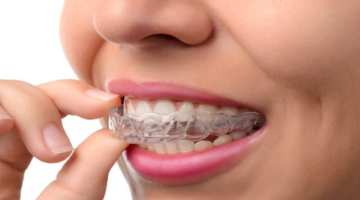Prevention: Keeping Your Teeth Healthy
Great smile... healthy teeth! Our first priority is your overall dental health. You may just need a scheduled cleaning and exam - or you might be ready to restore (place crown) on your implant or a root canal. Either way, we will provide you with the best and most conservative treatment available. Early detection and intervention are the keys to preserving what we've got for as long as we've got, so you can feel confident that your smile will be healthy and look great!
Regular Dental Checkups
In order to avoid lengthy procedures & maintain a healthy disease free mouth, we recommend recare every 6 months. This allows us to detect early signs of disease & provide appropriate treatment, leading to a favorable prognosis.
Dental Sealants
The pits and grooves of your teeth are prime areas for opportunistic decay. Even regular brushing sometimes misses some of these intricate structures on the chewing surfaces of your teeth. The ultimate goal of sealants is penetrating into the pit and fissures of the tooth and sealing them from bacteria.
Indications for use
Traditionally, sealants are thought of as a preventive measure for children and teenagers when they are in their “cavity prone years”. Patients who have xerostomia (decreased salivation), are undergoing orthodontic treatment, show evidence of incipient caries, or who are prone to caries should be evaluated as candidates for sealant placement. Primary molars also can benefit from the placement of sealants.
Fluoride Treatment
What is fluoride?
The fluoride ion comes from the element fluorine. Fluoride, is applied topically to erupted teeth to help prevent tooth decay, strengthen tooth enamel, and reduce the harmful effects of plaque. Fluoride also makes the entire tooth structure more resistant to decay and promotes remineralization, which aids in repairing early decay before the damage is even visible.
Nightguards & Bruxism
Wondering if a nightguard is right for you? While many people who clench their teeth can use behavior modification techniques in order to stop clenching their teeth throughout the day, those who clench their teeth at night do not have any control over doing so. Ready to learn more about how dental night guards can help?
About teeth clenching
The fact that teeth clenching, also known as bruxism, can negatively affect your oral health is important for you to understand. According to the American Academy of Oral Medicine, bruxism during sleep is very different from bruxism while awake. This is because when someone is sleeping they are not aware of what they are doing, which can lead to a large amount of force being placed on the jaws and in turn cause jaw pain, jaw dysfunction and/or ongoing fatigue.
Pros and cons of a dental night guard for bruxism
The list below includes some of the pros and cons that come with choosing to use a dental nightguard in order to prevent teeth clenching during the night.
Pro: It protects the teeth from damage
A dental night guard protects the teeth from damage by cushioning the effects of clenching while sleeping. This cushion barrier helps to prevent chipped teeth and worn-down teeth, two of the more common problems associated with the act of clenching one’s teeth.
Pro: It helps prevent jaw pain and headaches
Because the act of clenching one's teeth during the night places a lot of stress on the jaw, many people who clench their teeth will experience various levels of jaw pain. This jaw pain can eventually lead to their experiencing ongoing headaches and even migraines, making it difficult for them to function throughout the day.
Pro: It helps support a good night’s sleep
Since many people who clench their teeth during the night will wake themselves up when they are clenching, wearing a night guard will allow them to get a better night’s sleep. This is because night guards take the brunt of the force of clenching as they are made with the goal of keeping one’s muscles relaxed during sleep.
Con: Getting used to wearing the guard
It often takes patients a few weeks to become accustomed to wearing a night guard. Placing it in the mouth about 10 minutes before going to bed is recommended, as this allows one to get used to the feeling of the dental device. Even though some people may be tempted to not wear it every night, it really is important to do so in order to prevent experiencing problems associated with teeth clenching.
Ready to protect your teeth from bruxism?
Ready to find out if a night guard is your solution? The fact that teeth clenching can cause a lot of damage to your teeth and, as a result, your overall good oral health, makes it necessary for you to find a solution to end your clenching.
If you are interested in learning more about how a dental night guard can help you, contact us right now so we can get you scheduled for a consultation appointment.
Your smile is an investment for a lifetime!
The greatest compliment our patients can give is the referral of their friends and loved ones.
Refer a friend or family member to us and be sure they mention your name on their paperwork so that we can personally thank you. We'll also send you a $25 gift card to show our appreciation after their new patient exam, x-rays and cleaning.




